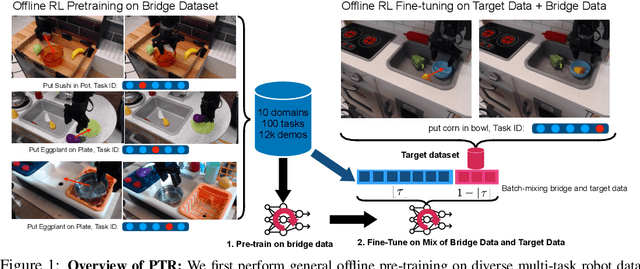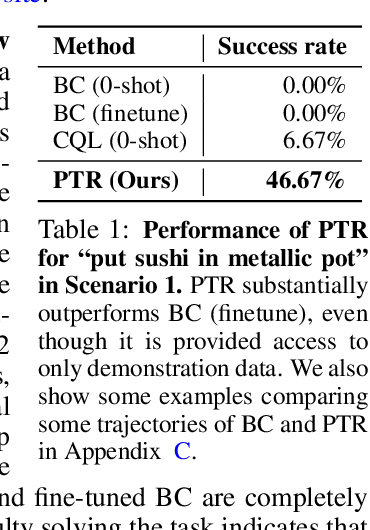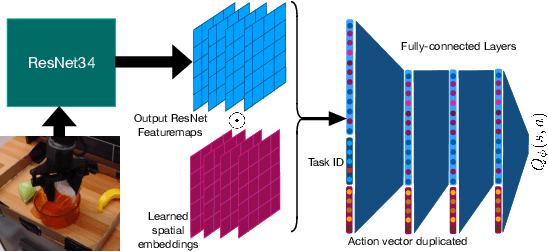Pre-Training for Robots: Offline RL Enables Learning New Tasks from a Handful of Trials
Paper and Code
Oct 11, 2022



Recent progress in deep learning highlights the tremendous potential of utilizing diverse datasets for achieving effective generalization and makes it enticing to consider leveraging broad datasets for attaining more robust generalization in robotic learning as well. However, in practice we likely will want to learn a new skill in a new environment that is unlikely to be contained in the prior data. Therefore we ask: how can we leverage existing diverse offline datasets in combination with small amounts of task-specific data to solve new tasks, while still enjoying the generalization benefits of training on large amounts of data? In this paper, we demonstrate that end-to-end offline RL can be an effective approach for doing this, without the need for any representation learning or vision-based pre-training. We present pre-training for robots (PTR), a framework based on offline RL that attempts to effectively learn new tasks by combining pre-training on existing robotic datasets with rapid fine-tuning on a new task, with as a few as 10 demonstrations. At its core, PTR applies an existing offline RL method such as conservative Q-learning (CQL), but extends it to include several crucial design decisions that enable PTR to actually work and outperform a variety of prior methods. To the best of our knowledge, PTR is the first offline RL method that succeeds at learning new tasks in a new domain on a real WidowX robot with as few as 10 task demonstrations, by effectively leveraging an existing dataset of diverse multi-task robot data collected in a variety of toy kitchens. Our implementation can be found at: https://github.com/Asap7772/PTR.
 Add to Chrome
Add to Chrome Add to Firefox
Add to Firefox Add to Edge
Add to Edge